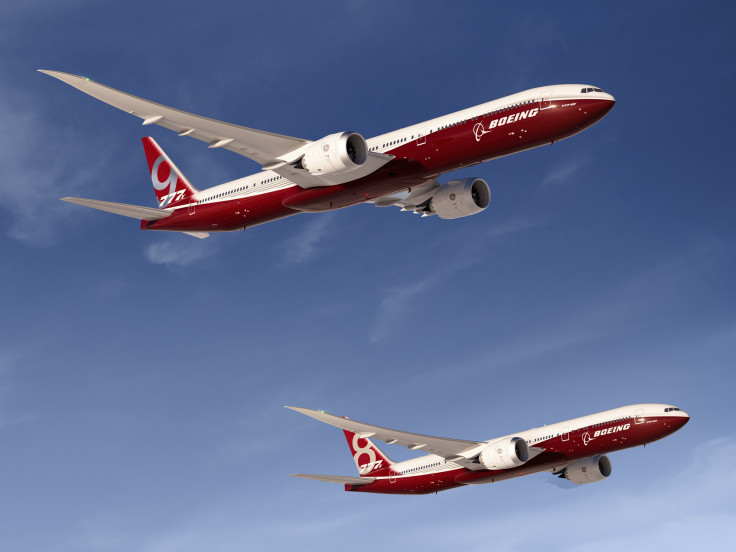Why Does Washington Favor Foreign Airlines Over US Carriers? Low-Interest-Rate Loans Available Only To Non-US Airlines Hurt US Carriers: ALPA

The massive $160 billion first-day order made by Gulf-based airlines at the Dubai Air Show has opened up old wounds and rekindled a decades-long dispute between the U.S. government and U.S.-based airlines as well as their unions.
Emirates Airlines on Sunday placed a $76 billion order for 150 of The Boeing Company's (NYSE:BA) 777 mini-jumbos and then spent $23 billion on 50 A380s from Boeing’s European rival Airbus, a holding of the European Aeronautic Defence and Space Company, or EADS (EPA:EAD).
However, while huge sales for the dominant forces in civil aviation are good for the airline manufacturing industry, those sales are unlikely to be welcomed by U.S. airline companies, as they don't get the same the low-interest loans that foreign-owned airlines get from the U.S. Export-Import Bank. In 2012, 82 percent of the Export-Import Bank's loan guarantees went to Boeing customers.
“The question of the day is: How many of these wide-body aircraft orders will be financed by a U.S. or European taxpayer-backed export credit agency, subsidizing the aircraft orders at rates not available to U.S. airlines,” said Capt. Lee Moak, president of the Air Line Pilots Association, the U.S. industry's pilots union.
ALPA claims the deals slash financing expenses for foreign airlines, enabling them to undercut U.S.-owned airlines by offering lower airfares.
In order to level the playing field, ALPA wants the U.S. to reform the high tax burden that U.S. airlines pay and eliminate the Export-Import Bank's low interest loans that are available only to foreign-owned airlines.
“These state-owned foreign airlines are spending billions to purchase wide-body aircraft so they can increase flights to and from the United States and unfairly compete against U.S. airlines in the global marketplace,” said Moak. “At the same time, the U.S. Export–Import Bank’s below-market financing allows U.S. airlines’ competitors to save millions when they purchase widebody aircraft like those announced this week.”
The big aircraft deals are good news for Boeing and the U.S. aircraft industry in general, which took orders totaling 259 of its 777 worth more than $100 billion, one of the largest orders in the history of the company.
While there is a seismic power shift under way in the airline business, with the Gulf region seeking to become a global aviation hub, the coming together of U.S Airways Group Inc. (NYSE:LCC) and American Airlines, creating the world’s largest airline, will offer some resistance to that new idea taking shape. The Gulf enjoys a prime location that links East and West, and fierce competition from the Gulf carriers is driving down prices, making it more and more difficult to compete. Pair that with weak margins and higher fuel costs, and there appears little that U.S. airlines can do to stop the Gulf aviation boom as they seek to globalize their economy and further diversify their oil-based economy.
“The secretary-general of the Arab Air Carriers Organization had it half-right in an April 2011 speech to the International Aviation Club in which he compared the U.S. airline industry to dinosaurs that will soon die due to their inability to adapt to their environment,” continued Moak. “If U.S. airlines are to die, it will be due to U.S. government policy and vision that is stuck in a domestic competitive mind-set while we do business in a global economic environment.”
The Dubai Air Show will run until Thursday.
© Copyright IBTimes 2025. All rights reserved.






















